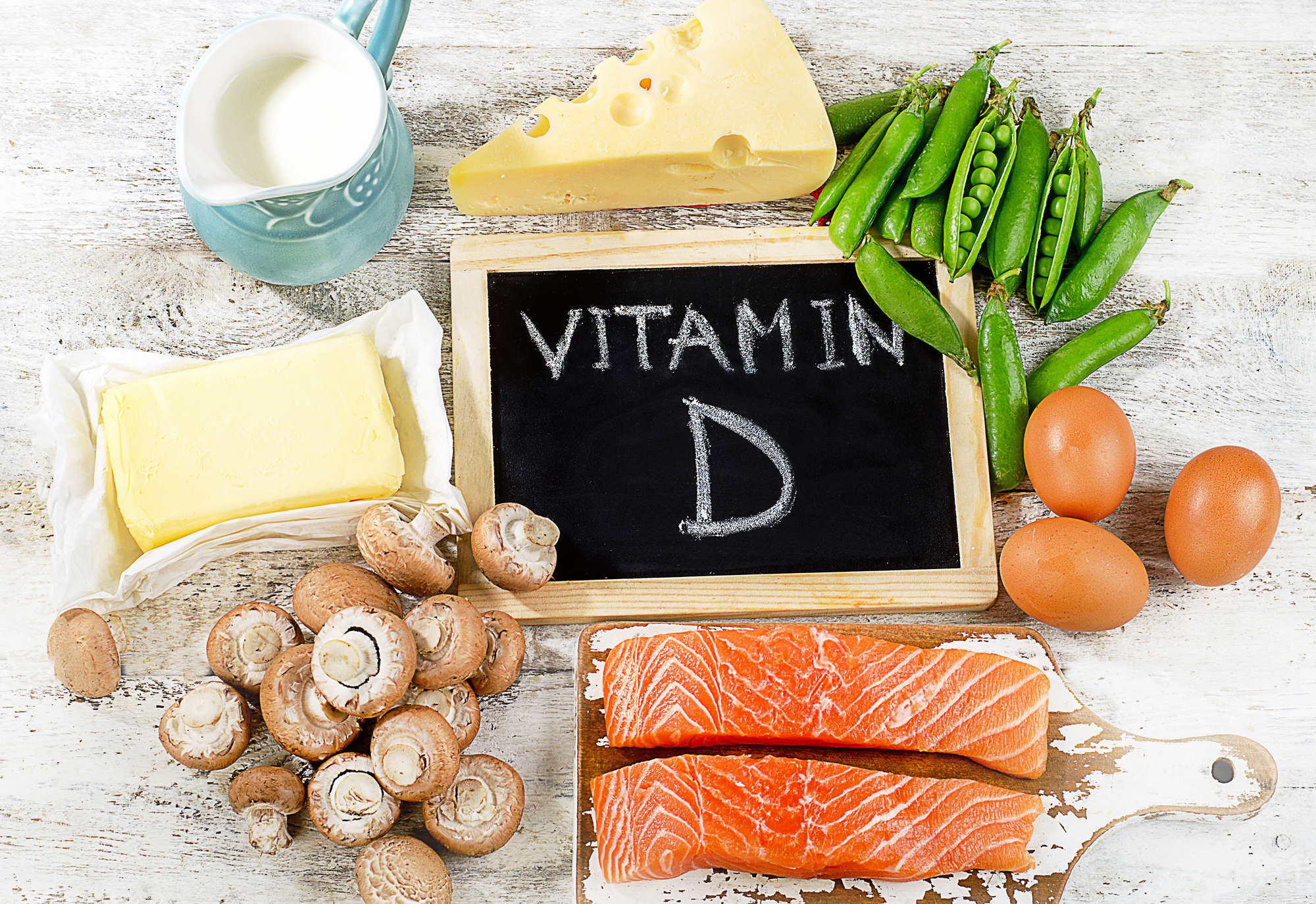Vitamin D plays a key role in helping the body absorb essential minerals and nutrients like magnesium, phosphate and calcium (one of the main building blocks for stronger teeth and bones). It’s so important, in fact, that your body makes it by itself when exposed to sufficient sunlight.
Regular sun exposure is the most natural way to get enough vitamin D. To maintain healthy blood levels, aim to get between 10-30 minutes of midday sunlight several times per week—but be sure to wear sunscreen with at least SPF 30 to avoid sunburn. Those with darker skin tones may need additional sunlight, as increased melanin (pigment) reduces the body’s ability to absorb as much UV radiation. If you are unable or unwilling to spend time soaking up the sun, it’s important to take a daily supplement to maintain healthy levels of vitamin D in your body. Vitamin D is an important vitamin that supports:
- Healthy bones and teeth
- Healthy muscles
- Immune, brain and nervous system health
- Healthy insulin levels for diabetes management
- Healthy blood pressure levels
- Lung function and cardiovascular health
- Weight loss
- Mood
With more than 40% of Americans deficient in vitamin D, you may be asking, “How much vitamin D do I need a day to be healthy?” And the answer is, it depends.
How much vitamin D do I need a day?
If you’re a senior in an assisted living facility, or if you’re living in the northern part of the country and have darker skin, you may not be getting enough vitamin D from natural sources like sunlight. In that case, it’s important to supplement your diet with a daily vitamin.
Determining how much vitamin D you need in a day depends on several things like your age, where you live, how much sunlight you get each day and your diet. Generally speaking, however, the National Institutes of Health recommends the following:
- Birth to 12 months: 10 mcg (400 IU)
- Children and teens 1-18 years: 15 mcg (600 IU)
- Adults 19-70: 15 mcg (600 IU)
- Adults 71 and older: 20 mcg (800 IU)
- Pregnant and breastfeeding women: 15 mcg (600IU)
For comparison, spending a short amount of time in the sun (approx. 30 minutes) is equivalent to consuming 10,000 – 20,000 IU of vitamin D. While this is significantly more than the recommended daily value, there is no risk of your body making too much vitamin D from the sun, but it may put you at risk for sunburn.
Symptoms of a vitamin D deficiency
Think you may have a vitamin D deficiency? Here are some symptoms of low vitamin D to consider:
- Frequent illness or infections
If you often become sick, especially with colds or the flu, low levels of vitamin D may be a contributing factor. - Fatigue and tiredness
Vitamin D helps mitochondria, a part of the cell that generates energy, use oxygen and power various parts of the body. - Bone and back pain
Low levels of vitamin D mean your body isn’t absorbing enough calcium, which can contribute to bone and joint pain, or musculoskeletal pain. - Depression
Low vitamin D may impair cognitive function because there are vitamin D receptors in areas of the brain that are responsible for mood and behavior, including the development of depression.
Long-term health risks vitamin D deficiency
If you or a loved one is experiencing symptoms of vitamin D deficiency, it may be time to seek medical care and talk to them about taking a supplement. Prolonged or chronic low vitamin D levels can lead to several health conditions, including:
- Heart disease
The leading cause of death in the United States. - High blood pressure
Vitamin D helps regulate blood pressure. Uncontrolled high blood pressure can lead to complications like heart disease, stroke, atherosclerosis, and more. - Osteoporosis
Vitamin D supports calcium absorption, which is essential for good bone health. - Cancer
Studies suggest maintaining sufficient levels of vitamin D may help lower your risk of cancer.
If you want to head outdoors this summer to soak up some extra vitamin D, avoid possible sunburn by applying an SPF 30 or higher sunscreen that offers both UVA and UVB protection. If you do become sunburned, visit Thibodaux Regional Urgent Care – Houma to avoid infection and get relief. We welcome walk-in appointments 7 days a week from 9 a.m. – 8 p.m.

